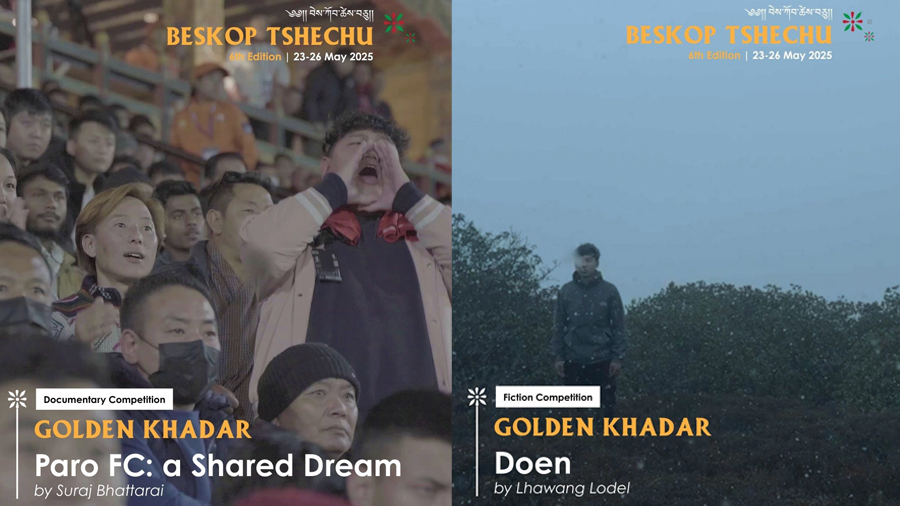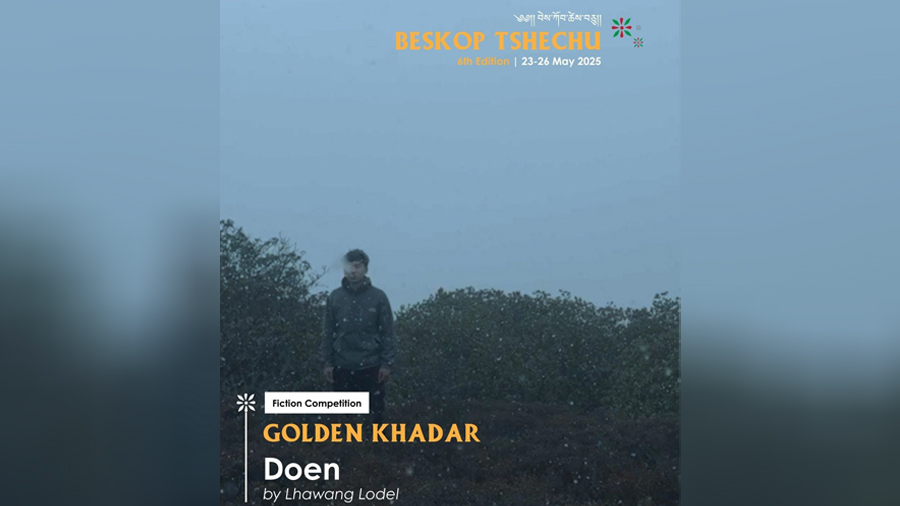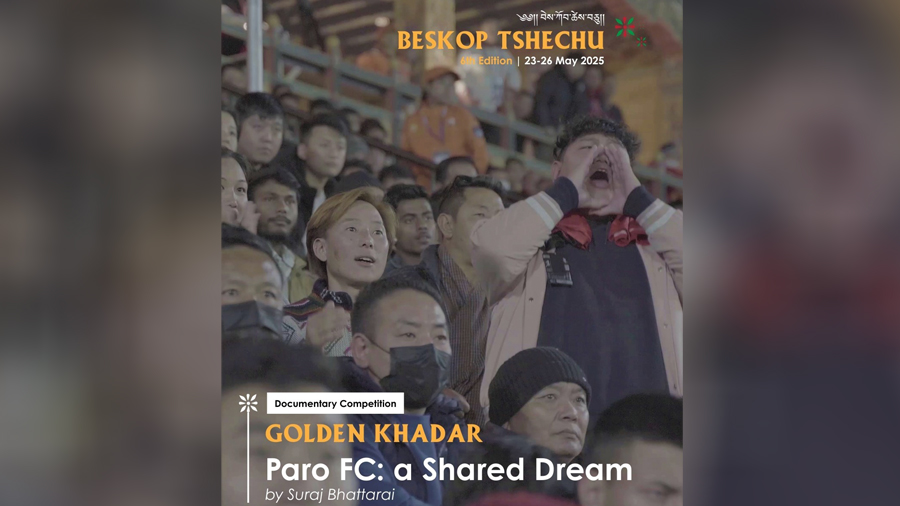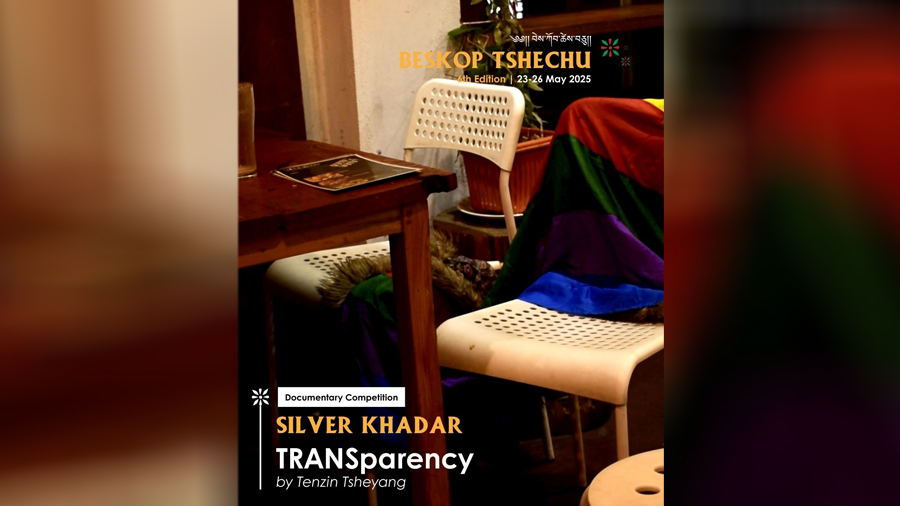 A documentary featuring Paro FC’s untold journey and a short film that explores the quiet reflection of fear and memory were the winners of this year’s Beskop Tshechu awards. 16 fiction and documentary films competed in their respective categories. The four-day festival concluded yesterday with the award ceremony, drawing filmmakers, government officials, actors, and film enthusiasts.
A documentary featuring Paro FC’s untold journey and a short film that explores the quiet reflection of fear and memory were the winners of this year’s Beskop Tshechu awards. 16 fiction and documentary films competed in their respective categories. The four-day festival concluded yesterday with the award ceremony, drawing filmmakers, government officials, actors, and film enthusiasts.
 In the Fiction Film category, the Golden Khadar or the first prize was awarded to Lhawang Lodel for his film “Doen.”
In the Fiction Film category, the Golden Khadar or the first prize was awarded to Lhawang Lodel for his film “Doen.”
Described as a quiet journey through fear, memory, and the courage to move forward, “Doen” struck a chord with both jury and audience alike.
“I am very happy to have won this year’s Beskop Tshechu. I am also quite pleased not just with myself, but with my team as well because this is what we worked for. The inspiration behind this film came from my own life experiences.”
 In the Documentary category, Suraj Bhattarai claimed the top honour for his film “Paro FC: A Shared Dream.”
In the Documentary category, Suraj Bhattarai claimed the top honour for his film “Paro FC: A Shared Dream.”
His powerful storytelling highlighted the passion, discipline, and resilience that shaped Paro FC into one of Bhutan’s leading football clubs.
“There aren’t any platforms to showcase art and creative work so, I think that platforms like this really have to grow. For cinema, for films, we do not need to have too many festivals but it is important for this festival to grow and this festival to get all the support.”
 Out of seven women filmmakers, Tenzin Tsheyang’s “TRANSparency,” a personal and honest documentary about gender identity, bagged the Silver Khadar in the documentary category.
Out of seven women filmmakers, Tenzin Tsheyang’s “TRANSparency,” a personal and honest documentary about gender identity, bagged the Silver Khadar in the documentary category.
“I’m grateful to all the Beskop team and the juries for recognising the potential our documentary had. I hope to continue exploring filmmaking more. To all young filmmakers, I’d like to advise them to not be afraid of rejection and to take risks because you never know how events might unfold.”
Winners received certificates and cash prizes ranging from Nu 20,000 to 50,000.
The six-member jury included both national and international filmmakers and artists. They praised the films for their originality, bold themes, and emotional depth.
Tenzin Tsetan Choklay, Tibetan-American filmmaker said “The Bhutanese film community is at an early stage in its history so, I didn’t know what to expect. But seeing all the films, I was amazed by how local stories are being told. Many of the storytellers are beginners, very young, and have still done a really wonderful job. What was also lovely to see is how close the community is, with everyone trying to support each other.”
As the curtain falls on this year’s Beskop Tshechu, the applause continues not just for the winners but for all who dared to tell their stories.
Kinley Bidha









